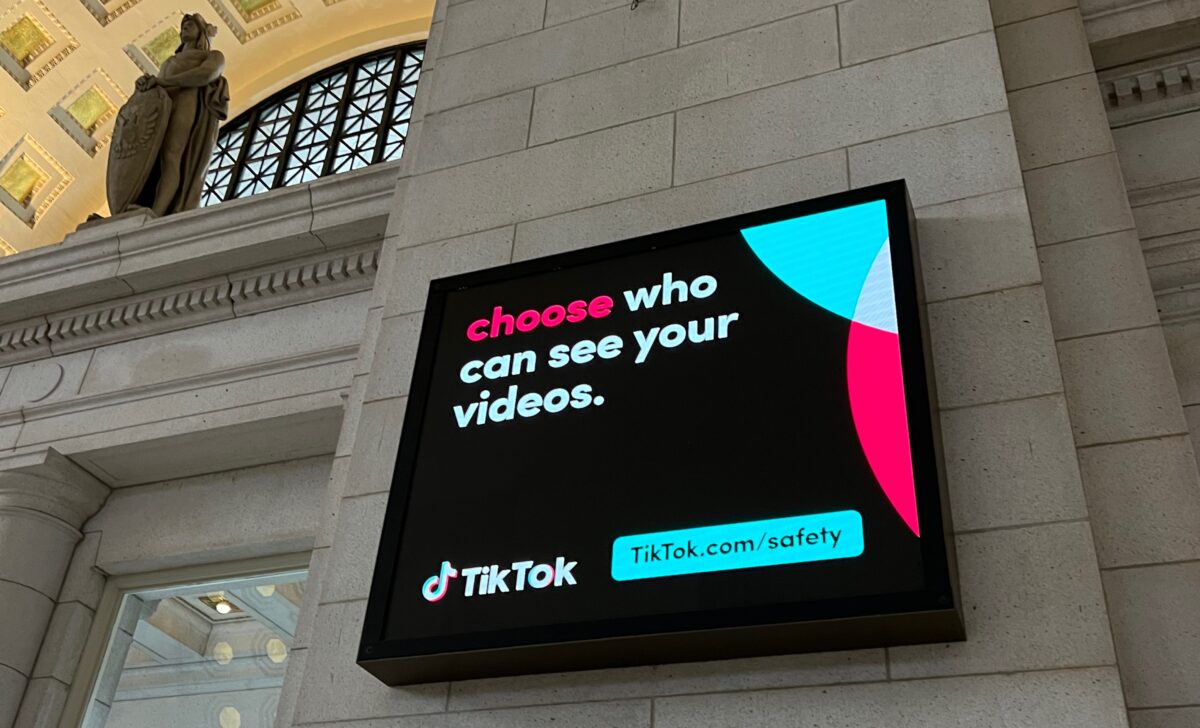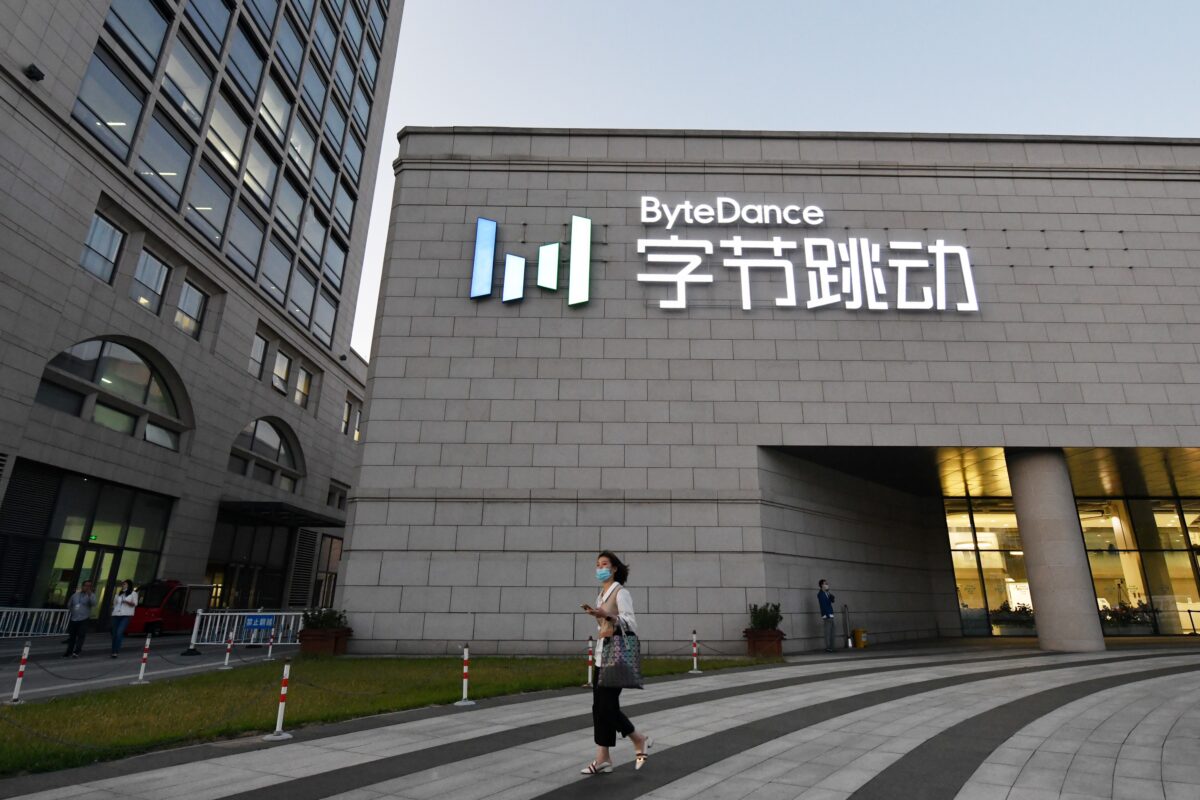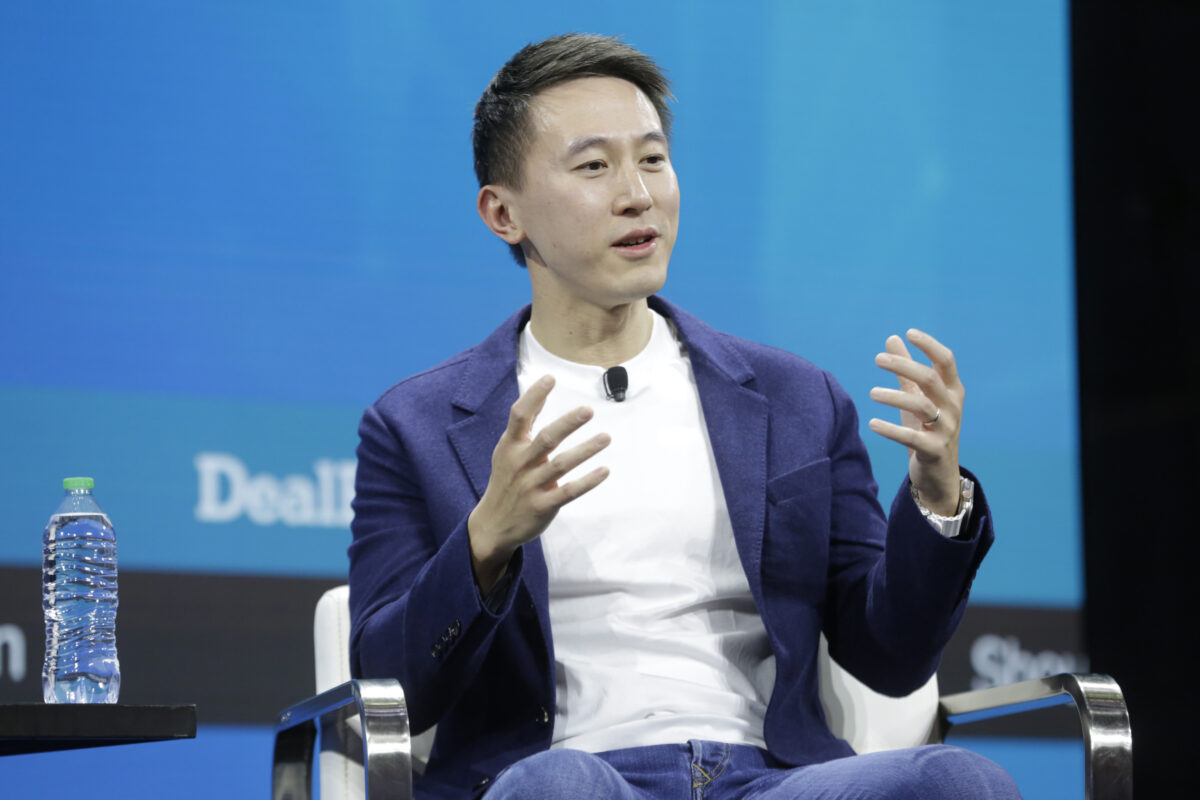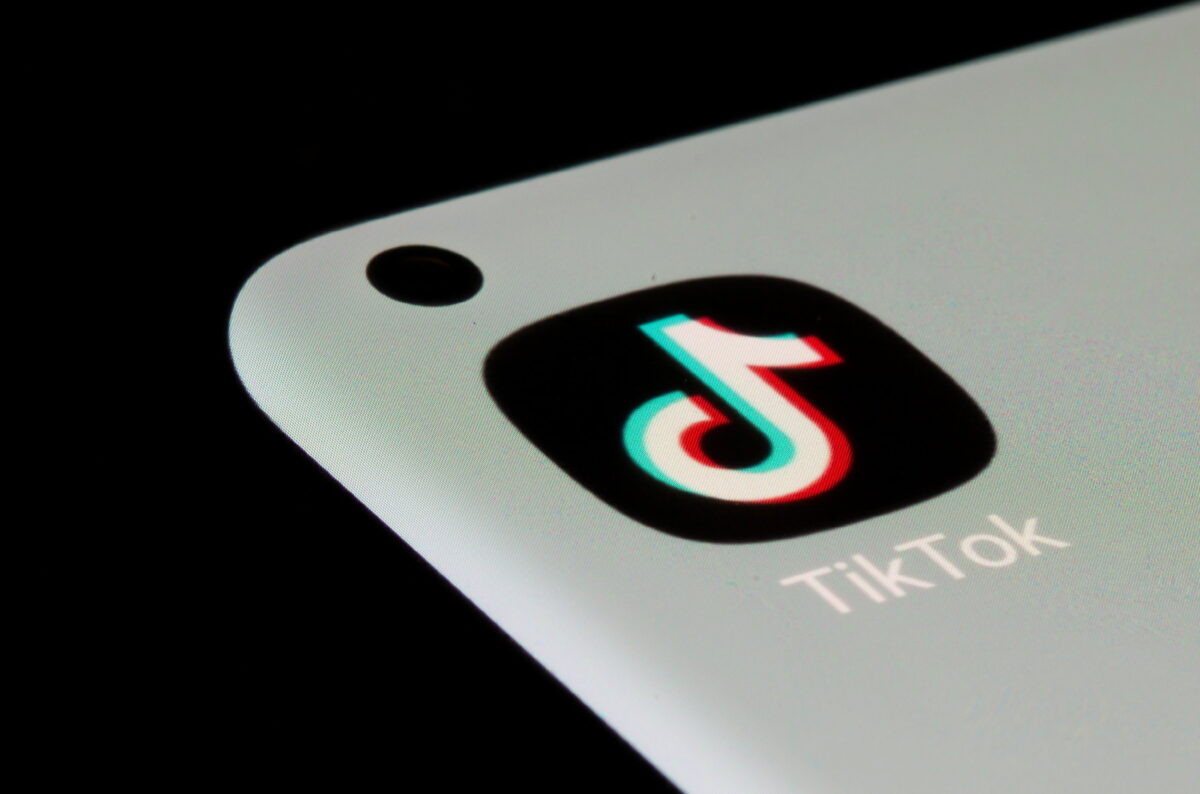


News Analysis
Social media giant TikTok is on a lobbying warpath in the nation’s capital, attempting to sway public opinion ahead of Congressional hearings that will examine the company’s ties to China’s communist regime.
TikTok and its China-based parent company ByteDance spent over five million dollars on lobbying efforts in the United States last year, and could break that record if recent events are any indicator.
The company has hired an in-house lobbying and public affairs team led by former congressional staffers with deep ties to the Biden administration, and is also sponsoring content in major U.S. media outlets.
Those employed by the tech giant include consulting firm SKDK, whose founder is now a senior advisor to President Joe Biden. Media buys include dozens of pieces of sponsored content in Axios, Politico, and the Washington Post. And the company is also paying for dozens of influencers to descend on the capital for three days to give speeches in favor of the company.
The flurry of activity is happening in the days before TikTok CEO Shou Chew is scheduled to make his first-ever Congressional appearance before a hearing of the House Energy and Commerce Committee on March 23, which will examine the company’s data practices and relationship to the Chinese Communist Party (CCP).
“Americans deserve to know the extent to which their privacy is jeopardized and their data is manipulated by ByteDance-owned TikTok’s relationship with China,” said Committee Chair Cathy McMorris Rodgers (R-Wash.) in a statement.
“We look forward to hearing from Mr. Chew directly and continuing Energy and Commerce’s efforts to bring Big Tech CEOs before the committee to answer for their companies’ destructive actions.”

Staffers from the committee have made no secret about their concerns over TikTok and its relationship to the CCP through ByteDance. Multiple Energy and Commerce staffers held a press call on March 20, speaking about the issue on the condition of anonymity.
“Over and over again we have heard TikTok say that it is safeguarding our data from the Chinese Communist Party but the facts certainly tell us otherwise,” one aide said.
“CCP national intelligence laws require that Chinese companies like ByteDance spy on their behalf and we know that TikTok and ByteDance are one and the same.”
The issue of how much control the CCP-affiliated ByteDance has over TikTok has been a constant source of concern for lawmakers and security experts.
While many tech companies track information about users, those originating in China are of particular concern because CCP law defines data as a national resource and therefore makes all data stored in China available to the regime upon request.
That’s a real problem for Americans given the sheer volume of data that TikTok seeks to collect.
It was discovered in August, for example, that TikTok’s browser contained code for conducting keylogging, meaning that the app records all of a user’s keystrokes on the device they are using the in-app browser with, including in their email and passwords.
Casey Fleming, CEO of security advisory firm BlackOps Partners, said at the time that the functionality essentially turned TikTok into an “espionage application” for the CCP.
“When you’re actually doing keystrokes, typing each letter, each number, those are being recorded back in China, and under supervision of the Chinese Communist Party,” Fleming said during an interview with NTD, The Epoch Times’s sister media outlet.
“What you’re texting, who you’re texting, passwords, email accounts, everything on your phone, anything that you’re typing in emails or texting, that keylogging is recording each word, each password, and so on.”
One Energy and Commerce aide spoke similarly, saying that TikTok’s attempts to surveil every single thing about a user were a cause for concern, particularly so given ByteDance’s control over the TikTok algorithm.
“TikTok surveils everything and everyone,” the aide said. “Names, ages, locations, what you do outside of TikTok, the text you copy, who you talk to, passwords, browsing history, biometric data like your face, voice, prints, and more.”
“TikTok uses all of this to build its algorithm which has the power to shape what we see, hear, and ultimately believe … ByteDance controls that algorithm. There’s no question on that. TikTok cannot even refute that. That is one area where they refuse to be transparent.”
For its part, TikTok maintains that the app is safe for Americans and that it will not pass on American user data to the CCP. ByteDance, however, is bound by Chinese laws that do not allow a firm to refuse to provide data when asked.

TikTok CEO Chew, in his prepared testimony for the Energy and Commerce released ahead of the hearing (pdf), stated that no such request by Chinese authorities has ever been made of TikTok, but did not clarify if the CCP had requested ByteDance to hand over data originally received from TikTok.
In his testimony, Chew intends to argue that TikTok is an essential part of American culture and empowers youth to live authentically and businesses to thrive in unpredictable times.
That sway over the nation’s youth and small businesses, he will say, “cannot be replicated on any other platform or in any other medium.”
The current version of the app, Chew will also argue, does not track specific location information, and the idea that TikTok was controlled by the CCP is “emphatically untrue.”
Though the sheer volume of data collected by TikTok and seen in China is alarming experts and lawmakers, some may brush off the practice as the cost of using the app. There is one glaring problem with that assumption, however.
“TikTok has your data even if you don’t have the app,” said one Energy and Commerce aide.
That’s because ByteDance and TikTok make heavy use of tracking pixels, which follow users and non-users alike across the internet, measuring usage and building profiles.
While such pixels are regularly used by tech companies to measure the effectiveness of advertising campaigns, the fact that these pixels are operated by a company with extensive ties to the CCP is a cause for concern.
But where these trackers are found is more alarming still.
A March report by IT firm Feroot Security found that 30 U.S. state government websites contained tracking pixels created and maintained by ByteDance, meaning that the CCP could have gained access to personal data from Americans who did nothing more than visit the website of their local government.
What’s more, some of those sites with tracking pixels belonged to state governments that had banned TikTok from government devices.
That’s a problem given the fact that, according to a March 14 report presented to the Australian government, ByteDance is a “party-state-controlled entity,” and its employees have used the company’s data as well as TikTok’s to conduct illicit work against American citizens.

Indeed, ByteDance employees have sought to silence those critical of the company’s ties to the regime, and have used TikTok to do it.
Late last year, ByteDance employees illicitly stalked American journalists by using private geolocation data from TikTok, including the journalists’ IP addresses, and cross-referencing that data to identify whether the journalists had frequented the same areas as ByteDance employees suspected of being whistleblowers.
What’s more, the team that oversaw the surveillance campaign was actually ByteDance’s Internal Audit and Risk Control department, a Beijing-based unit responsible for conducting investigations into potential misconduct by current and former ByteDance employees.
TikTok CEO Chew, in his prepared statement, said that TikTok employees were also involved in the incident but that they are no longer with the company.
The stalking incident is nevertheless reportedly being investigated by the FBI, and provides just one of many examples of how ByteDance has used TikTok to suppress views critical of China’s communist regime abroad
Back in 2020, for example, a TikTok executive acknowledged that the app was used as a “blunt instrument” used to censor content critical of the regime, including coverage of the ongoing persecution of the Uyghers and other minority groups, which the United States recognizes as a genocide.
At the time, TikTok’s internal documents even used Tibet and the Tiananmen Square Massacre as examples of content that needed to be taken down from the platform, though the company says that this is not the company’s policy anymore.
Then, in 2021, TikTok opted to pay $92 million to settle a class action lawsuit alleging that the company illegally harvested Americans’ data and transferred it to China-based entities.
Likewise, in 2022, TikTok employees admitted that key company decisions appeared to be delegated to ByteDance by CCP officials in China before being delivered to TikTok.
“Many of TikTok’s employees report directly to Beijing,” one Energy and Commerce aide said, adding that ByteDance employees regularly access TikTok’s data.
“Everything is seen in China.”
TikTok’s long history of promoting the CCP’s interest, both directly and through parent company ByteDance, is becoming increasingly well known by the public. More concerning for some, however, is the company’s steadfast refusal to abandon its links to China.
Since 2020, TikTok has resisted U.S. demands that it be sold to an American company, even though it would earn ByteDance a hefty profit. Then-President Donald Trump had ordered ByteDance to sell TikTok to an American company due to national security concerns, resulting in a proposed deal with Texas-based Oracle that ultimately fell through.
Recently, the company confirmed that the Committee on Foreign Investment in the United States (CFIUS), a federal panel tasked to review foreign acquisitions for national security risks, had asked its Chinese owners to sell their stake in the company or face a total ban. In response, TikTok maintains that divestment “doesn’t solve” the national security concerns. “[A] change in ownership would not impose any new restrictions on data flows or access,” a TikTok spokesperson said.
For Nicolas Chaillan, former chief software officer of the Air and Space Forces, ByteDance’s steadfast refusal to sell TikTok at any price was a red flag that demonstrated the CCP’s control over the app.
“No company in the world has fought so hard not to be sold or bought by somebody,” Chaillan told the Epoch Times.
“That’s because it’s an intelligence weapon for the CCP and it has no price high enough for that [prospect] to be even remotely interesting because it was never about money,” he added.
“Obviously, they’re owned by the Chinese and China doesn’t want to lose it so they’re putting pressure on their teams to ensure this doesn’t happen.”
The White House previously demurred on whether it would support Congressional efforts to ban TikTok nationally, and the Biden administration has been in a holding pattern amid TikTok’s ongoing negotiations with CFIUS that seek to resolve the app’s security concerns.
The administration began to take a more assertive stance earlier in March, however, with national security advisor Jake Sullivan saying that President Joe Biden would welcome a bipartisan bill to ban the app and other foreign-owned companies from the United States.
“This legislation would empower the United States government to prevent certain foreign governments from exploiting technology services operating in the United States in a way that poses risks to Americans’ sensitive data and our national security,” Sullivan said.
But to Sen. Marco Rubio (R-Fla.), a noted China hawk, the administration’s actions have not been enough.
“The Chinese Communist Party will never miss an opportunity to exploit the openness of America’s political and economic systems,” Rubio said in an email. “And the Biden Administration will never miss an opportunity to pull a punch against the Chinese Communist Party.”
“They already have the authority to prevent a Chinese-owned and controlled TikTok from operating in the United States,” Rubio added. “After two years in office they have done nothing.”
The Epoch Times has requested comment from TikTok.
